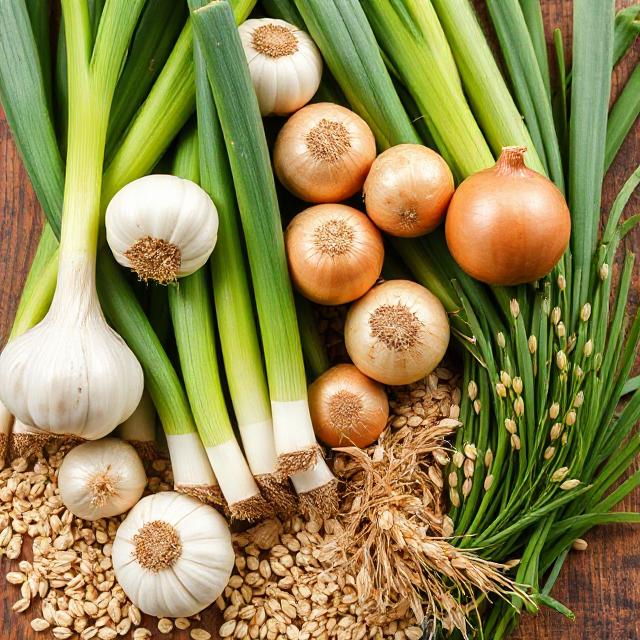Gut health is a cornerstone of overall well-being—affecting digestion, immunity, skin, and even brain function. But when it comes to supplements, many people ask:
Prebiotics vs. Probiotics for Gut Health—Which is Better?
Let’s break it down using evidence-based insights, including wisdom from Dr. Barbara O’Neill, to help you understand what’s best for your gut.
What Are Probiotics?
Probiotics are live beneficial bacteria that naturally live in your gut. Their role includes:
- Supporting digestion
- Producing vitamins like B12 and K2
- Regulating the immune system
- Preventing harmful bacteria from taking over
You can get probiotics from:
- Fermented foods: sauerkraut, kimchi, miso, kefir, yogurt
- Probiotic supplements: capsules, powders, or liquids containing live cultures
What Are Prebiotics?
Prebiotics are a type of non-digestible fiber that acts as food for probiotics. They help beneficial bacteria grow, flourish, and carry out their job effectively.
Common prebiotic-rich foods include:
- Garlic
- Leeks
- Onions
- Green bananas
- Oats
- Chicory root
According to Dr. O’Neill, you can’t repopulate your gut bacteria with probiotics alone—you need prebiotics to feed and sustain them.
Are Prebiotics or Probiotics Better for Gut Health?
Neither is better on its own—they work synergistically.
- Probiotics are like planting seeds.
- Prebiotics are the water and soil that help them grow.
To build and maintain a healthy gut, include both in your diet or supplementation plan. That’s why many experts recommend best pre and probiotics for gut health in combination.
Best Prebiotics for Gut Health
Whether through diet or supplements, here are some of the best prebiotics:
Top Prebiotic Foods:
- Asparagus
- Jerusalem artichoke
- Barley
- Apples
- Flaxseeds
Best Prebiotic Supplements:
- Inulin
- Acacia fiber
- Galacto-oligosaccharides (GOS)
- Fructooligosaccharides (FOS)
Most Effective Probiotics for Gut Health
If you’re looking to rebuild your microbiome, especially after antibiotics or digestive issues, choose probiotics with:
- Multiple strains (e.g., Lactobacillus, Bifidobacterium)
- High colony-forming units (CFUs)—look for 10 billion+
- Delayed-release capsules to survive stomach acid
Top 5 Probiotic Strains:
- Lactobacillus rhamnosus GG – Immune support
- Bifidobacterium longum – Gut lining protection
- Saccharomyces boulardii – Antibiotic-related diarrhea
- Lactobacillus acidophilus – Lactose digestion
- Bifidobacterium bifidum – Constipation relief
Best Pre and Probiotics for Gut Health in Women
Women may benefit from tailored formulations that support:
- Digestive balance
- Vaginal flora
- Hormonal stability
Look for products with cranberry extract, Lactobacillus reuteri, and Vitamin D.
Best Foods Combining Prebiotics and Probiotics
These natural combos offer both elements in a single meal:
- Yogurt + Banana
- Kefir + Oats
- Sauerkraut + Legumes
- Kimchi + Brown Rice
Such combinations are often more effective than supplements.
What’s the Best Way to Take Prebiotics and Probiotics?
Timing Tips:
- Take probiotics with food (after meals) for better absorption
- Take prebiotics daily, ideally with meals that include fiber
Can You Take Them Together?
Yes! In fact, many prebiotic and probiotic combination supplements are designed to work best when taken simultaneously.
Do Prebiotics Feed Probiotics?
Yes—prebiotics are fuel for probiotics. They ferment in the colon, creating short-chain fatty acids that:
- Strengthen the gut barrier
- Reduce inflammation
- Improve mineral absorption
Without prebiotics, probiotics cannot establish a thriving colony in your gut.
What Are the Best Prebiotic and Probiotic Supplements?
While food is always the first choice, here’s what to look for in a supplement:
Prebiotics:
- Clean ingredient label
- Fiber from natural sources
- No artificial additives
Probiotics:
- High CFU count (10B–50B)
- Multiple strains
- Stability (refrigeration or shelf-stable)
Frequently Asked Questions
Are Prebiotics Better Than Probiotics?
No—they serve different but complementary functions. You need both for a balanced gut.
Which Do You Take First, Prebiotic or Probiotic?
Both can be taken together. If using them separately:
- Prebiotics in the morning
- Probiotics after meals
Is There a Prebiotic and Probiotic in One Supplement?
Yes—look for synbiotic supplements, which contain both.
Conclusion: What’s Best for Gut Health?
To heal and maintain gut health:
- Eat a fiber-rich diet
- Incorporate fermented foods
- Use high-quality supplements when needed
- Avoid excessive sugar, processed foods, and unnecessary antibiotics
Dr. Barbara O’Neill reminds us that gut healing is a process, not a quick fix. It begins with lifestyle choices, and the right combination of prebiotics and probiotics can transform your health from the inside out.



